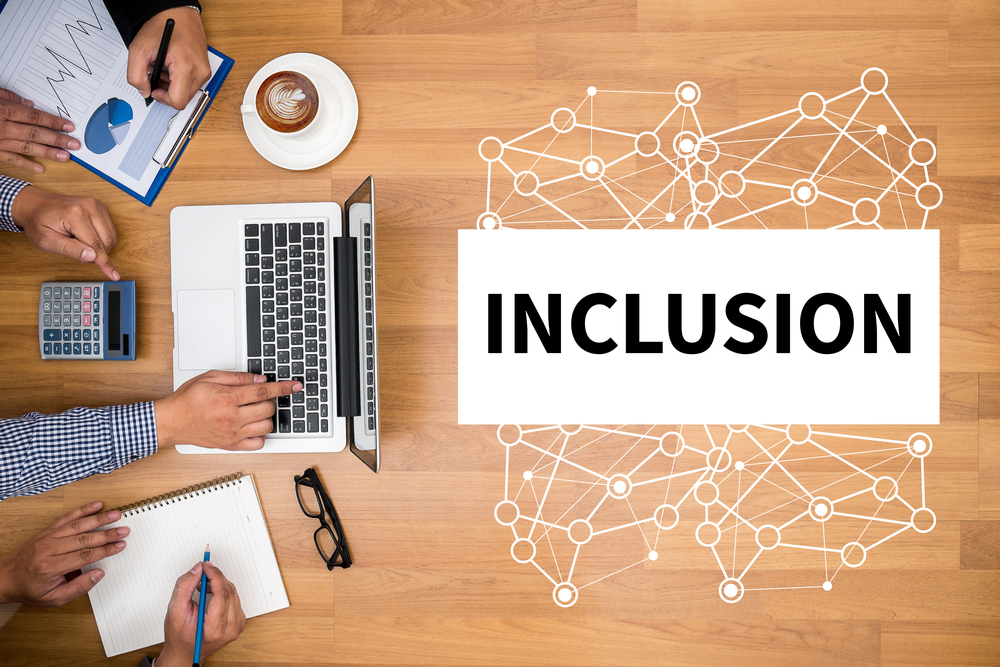In my lifetime, I have witnessed the significant diversification of the workforce. When I was younger and first out of university, the cultural makeup of the organization where I went to work looked a lot like me. As travel and crossing borders became more common, the workforce has become more diverse. In fact, diversity in most organizations today is a given. It’s inclusion that is a choice. And it is inclusion where leaders can have the most significant impact on the buy-in and engagement level of their teams.
Do You Belong Here?
Inclusion is a feeling of belonging. Based on how my boss and colleagues treat me, I will determine whether I am an insider or an outsider in this organization. You can easily see how if someone feels like they are an outsider and they don’t belong, how they would not be fully engaged in the work or fully bought into you as the leader.
When I became a second-line leader and had leaders reporting to me, I finally realized that every time I open my mouth, I either pull people closer to me or push them further away. It was during that time in my leadership journey that I began to recognize that every person has a unique value to bring to the team. It was clearly up to me to exhibit inclusive behaviors that invite everyone on the team to the table to be seen, heard, and welcome.
Three Questions for Inclusive Leadership
When it comes to becoming an inclusive leader, I think you need to recognize that every follower and colleague in your organization is asking three questions about you:
Question #1 is, do you SEE ME? We have all probably had the experience of speaking with someone in a crowded room, and the entire time you are interacting with them, their eyes are roaming the room looking for someone more important than you.
When you “see” someone, really see someone, you give them your undivided attention. Undivided attention is evidenced by eye contact, active listening, and genuine interest in them personally and in what they are saying. When someone feels seen by you, they feel valued by you. They feel included and like they belong.
By the way, how do you think this act of really seeing people is affected by the current environment of virtual meetings? You will need to be more intentional than ever to “see” people over a virtual or phone connection.
Question #2 that followers and colleagues are asking about you is, do you VALUE ME? To feel that I am included and that I belong, I want to know if you value me as a person and as a teammate. Do you value my thinking, and do you invite me to contribute to the conversation? It’s easy to say yes to these questions, but are you communicating it regularly with your actions, words, tone, eye contact, and body language? The number one way I have found to show value to another person is to listen to them. When you invite them to contribute and then truly listen, you are sending a message that YOU MATTER.
Question #3 is, do you INCLUDE ME? This is one that can be easily overlooked when we get busy with the urgent and important activities of our day. One way I have found to communicate the feeling of being included is to ask people what they think about something I am working on or thinking about. It sounds almost too simplistic, but what I have found is that I am pretty sure I have the answers I need, and I don’t want to trouble anyone else with something where I already know the answer. What I have learned, however, is that NOT having all the answers is a great way to communicate that I need you, I need help from you, I value your input, I don’t know what I don’t know, and I want to include you in what we are doing as a team.
Having and promoting an inclusive culture is a leadership competency. People are watching you all the time, and they derive their feeling of belonging and value to the organization from you. Every time you open your mouth, you are either making someone feel more included, or you are pushing them away.
Perry Holley is a coach and facilitator with the John Maxwell Company’s Corporate Solutions Group as well as a published author. He has a passion for developing others and seeing people grow into the leaders they were intended to become.

